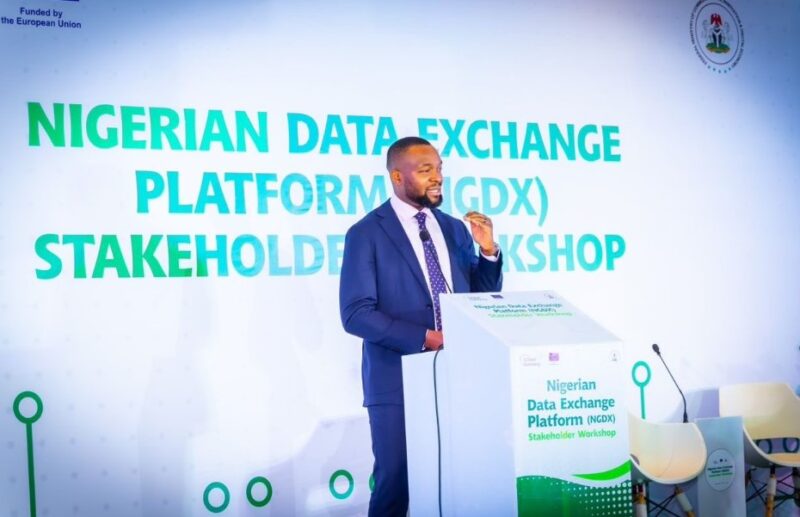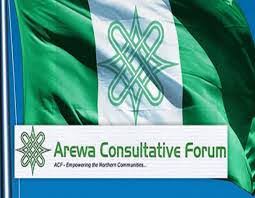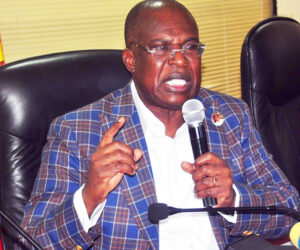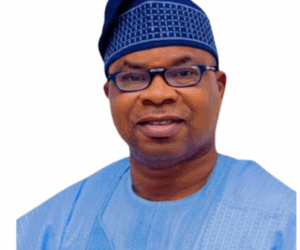The Federal Government of Nigeria has unveiled the Nigerian Data Exchange (NGDX), a platform aimed at unifying data exchange and submission. The project, as described by the Minister of Communication and Digital Economy, Dr. Bosun Tijani, will enable a secure and seamless data sharing across government and business.
During the launch at Monday’s Data Exchange Conference organised by the National Information Technology Development Agency (NITDA), the initiative was described as an end to multiple submission data by Nigerians. This means that individuals will no longer need to drop the same data to a government agency when needed.
For a while, Nigerians have experienced cases where personal data is being submitted repeatedly across different government platforms. Identification numbers like National Identification Number (NIN), Bank Verification Number (BVN), Voter Identification Number (VIN), and Driver’s License are involved in this process.
With the NGDX, authorised Ministries, Departments, and Agencies (MDAs) will be able to access citizens’ data, verify and share records on a unified backend.
NITDA Director General, Kashifu Inuwa, explained that beyond the opportunity it provides for government parastatals, it will open a convenience for private organisations. The innovative approach will allow firms like Fintech to carry out new users’ KYC verification.

He noted that NGDX will allow startups and enterprises to build solutions leveraging anonymised public data for improved healthcare delivery, agricultural productivity, fintech development, and education technology. This saves time, improves efficiency and allows easier access to government-backed data verification systems.
Inuwa highlighted that the NGDX is also an essential digital infrastructure in relation to the nationwide fibre optic rollout. The initiative represents the federal government’s continued effort towards a global digital economy rollout and embracing technology.
The project, which is still a work in progress, is primarily championed by both the NITDA and FMCIDE, and other key stakeholders. The Nigeria Data Exchange is backed by the European Union in Nigeria under its Global Gateway project.
According to Tijani, the NGDX will go live by the end of 2025.
Also Read: Data protection: NDPC probes 1,369 Nigerian firms for possible breach.


The data exchange platform: a turning point in data accessibility
The Nigerian Data Exchange Platform comes at a time when Nigerians have often questioned how government agencies request and manage personal information despite the rollout of NIN, BVN and SIM registration. The creation of a unified platform where authorised MDAs can easily and securely obtain the needed information has always been the way out.
In his reaction to the initiative, Tijani described the data exchange project as a system that will unlock innovation and extend the power of the Nigerian digital economy.
“NGDX will enable secure, seamless data sharing across government and business, unlock innovation, collaboration, and inclusive economic growth and deliver smarter, faster services to citizens under a framework of privacy, security, and accountability,” he said on his X page.
The European Union also described the initiative as a bold step that will strengthen Nigeria’s Data Public Infrastructure. It also explained that Nigeria has continued to solidify its position as a key player under its ‘Global Gateway’ campaign.
“Through the €820m EU–Nigeria Digital Economy package, the EU supports BRIDGE, 3MTT & digital businesses to strengthen trusted public services,” it said.
The project also saw other specific partners in the EU, such as Finland, Estonia, Germany & France.


While the initiative is a significant solution that allows seamless and easy access to information, data handling and security stand as a concern. To this, the federal government will need more than an assurance that citizens’ biometric data will only be accessed by authorised agencies.
Moreover, the platform must be strong to handle cyberattacks or data breaches during the transfer process. In a time when data is no longer safe, the federal government has a challenge ahead. It will also need to assure Nigerians that their essential details are safe with various authorised agencies.








